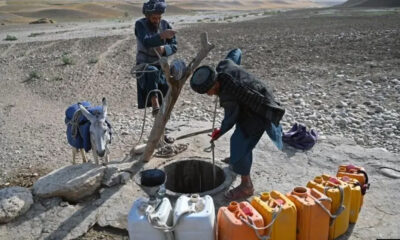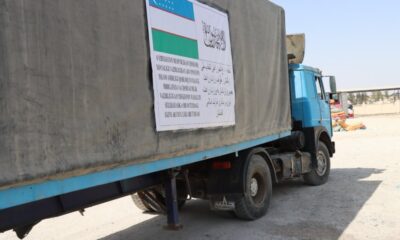Latest News
WFP needs $760 million for food aid in Afghanistan

The World Food Programme (WFP) has announced a dire need for $760 million in food assistance for Afghanistan over the next six months, amid growing international concerns about widespread poverty in the country.
In a recent post on X, the organization stated that millions of people in Afghanistan are suffering from severe hunger, with over half of the estimated 43 million population forced to reduce their food intake.
Findings from the World Food Programme indicate that at least 16 million people in Afghanistan experience daily concerns about having enough food.
Afghanistan faces one of the most serious humanitarian crises globally, a crisis that is typically exacerbated during winter due to road closures.
Forced deportation of Afghan migrants from neighboring countries, such as Iran, Pakistan, and Turkey, has intensified, with more than half a million Afghans deported by Pakistani officials since October 2023, despite harsh winter conditions.
Many of the returnees are confronted with numerous challenges, including inadequate access to water, shelter, and medical care, along with a scarcity of job opportunities and an uncertain future.
Furthermore, the severe earthquake that struck Herat province in October last year further exacerbated the dire humanitarian situation, particularly affecting vulnerable groups such as pregnant women and children, who faced heightened levels of malnutrition.
However, the officials in the Ministry of Economy say that they do not agree with the statistics published by foreign organizations. The ministry has also said that the international community should stop worrying about Afghanistan’s humanitarian situation and instead lift banking sanctions and release the country’s frozen assets.
Economic experts consider the continuation of international aid to the people of Afghanistan to be effective and say that this aid should continue until the country’s economic situation improves.
According to them, when the international community starts working on development projects, the process of poverty alleviation will be accelerated.
The World Food Program warned last year that Afghanistan is at the highest risk of famine and needs $800 million dollars.
Latest News
Domestic investors eye $650 million investment in Hajigak iron mine
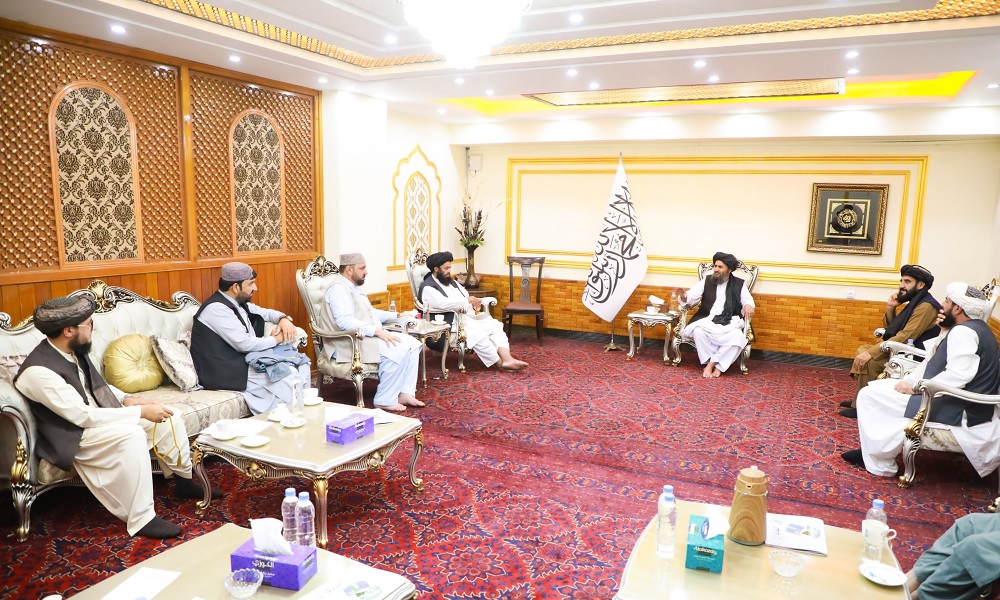
A number of domestic investors have announced plans to invest $650 million in three phases for the exploration and extraction of one of the blocks in the Hajigak iron mine.
The announcement was made during a meeting on Monday with Mullah Abdul Ghani Baradar, Deputy Prime Minister for Economic Affairs, who welcomed the initiative and reaffirmed the Islamic Emirate’s full support for such investments.
According to the investors, the project will be implemented in partnership with a foreign company and carried out using professional and modern mining standards. In addition to extraction, the plan includes the establishment of a sponge iron processing plant within Afghanistan, equipped with advanced technology and compliant with international standards.
The facility is expected to process up to 9,000 tons of sponge iron daily, converting it into steel billets to meet Afghanistan’s domestic demand for iron products. The project is also projected to create 6,000 direct jobs, contributing significantly to the local economy.
Mullah Baradar instructed the Ministry of Mines and Petroleum to collaborate closely with the investors and to regularly report on the project’s progress. He reiterated the government’s commitment to supporting initiatives that foster economic growth and self-reliance in the mining sector.
Latest News
Afghan energy minister leaves for international energy conference in Uzbekistan
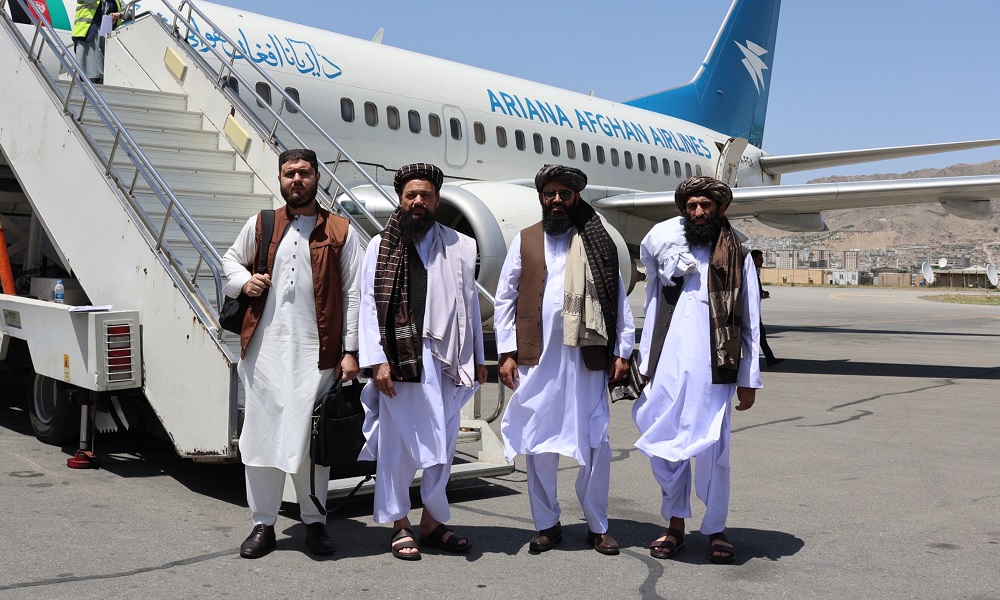
Acting Minister of Energy and Water Abdul Latif Mansoor has left Kabul for Tashkent to participate in the fifth Uzbekistan International Energy Conference.
The event is part of Energy Week of Uzbekistan 2025 that is focused on regional partnership for sustainable energy. It will be held from May 13 to 15.
The aim of the summit is to strengthen regional cooperation, attract investment in joint energy projects, exchange experiences and promote green technology, the Ministry of Energy and Water said in a statement.
During the conference, Mansoor is expected to emphasize expanding cooperation with regional countries, attracting foreign investment and using successful international experiences in the field of energy resource management, the statement said.
Representatives of regional countries, including Uzbekistan, Kazakhstan, Turkmenistan, Russia, as well as organizations s such as the International Atomic Energy Agency and the World Bank, are expected to attend the conference.
International Sports
IPL 2025: Update!
Indian media outlets reported that the BCCI has informed the ten IPL franchises to call back all their foreign players

The Indian Premier League (IPL) Governing Council will reportedly meet today, Monday, May 12, over the resumption of IPL 2025.
According to Cricbuzz, the Board of Control for Cricket in India (BCCI) might also announce the roadmap later in the day.
On Monday evening however, some Indian media outlets reported that the BCCI has informed the ten IPL franchises to call back all their foreign players, as a decision on the resumption of the 18th edition of the cash-rich league is coming soon.
However, no official announcement has yet been made by either the BCCI or the IPL council.
The last time the IPL was stopped midway through the tournament was during the COVID-19 pandemic. The IPL 2021 season, which kicked off in April, had to be suspended due to a national lockdown. The second half took place in the UAE later that year.
Speaking to local media after the decision to suspend the tournament Devajit Saikia said: “In the next few days, we will begin consultations with the franchises, broadcasters, sponsors and the state associations slated to host the remaining matches before crystallizing a decision on the league’s resumption.
“Given the importance of IPL at this juncture, it will also be prudent and necessary to take the nod of the Government of India before finalising the time for its restart.”
The board made the decision a day after calling off the Punjab Kings-Delhi Capitals match in Dharamsala due to security concerns.
The suspension however will have a stark impact on foreign players. Already a number of them have indicated that its unlikely that they will feature in the remaining games of the season.
Among those are Australian pacers Mitchell Starc and Josh Hazlewood.
Both players have already returned to Australia, and their participation in the remaining 12 league matches and the playoffs – if their franchises qualify – remains doubtful.
Australia captain Pat Cummins, Starc and Hazlewood’s colleague in the pace department, might not enjoy that luxury as he captains Sunrisers Hyderabad and his availability is crucial for the franchise.
While tensions have eased between New Delhi and Islamabad after the two countries agreed to a ceasefire on Saturday, India’s government is expected to wait for a few more days before giving the BCCI the go-ahead to resume the tournament.
-

 Regional5 days ago
Regional5 days agoIndia dismisses report of Pakistan downing jets as “disinformation”
-

 Sport4 days ago
Sport4 days agoAriana Television to broadcast 4th edition of Afghanistan Futsal Premier League
-

 Latest News4 days ago
Latest News4 days agoTAPI pipeline to reach Herat by end of 2025: Ministry
-

 Latest News4 days ago
Latest News4 days agoNearly one-third grapple with hunger in Afghanistan: WFP
-

 Sport4 days ago
Sport4 days agoIPL 2025: Dharamsala match abandoned due to security concerns
-

 Latest News5 days ago
Latest News5 days agoUzbekistan, Poland discuss cooperation over Afghanistan
-

 Regional4 days ago
Regional4 days agoIndia says military stations attacked by Pakistan drones and missiles
-
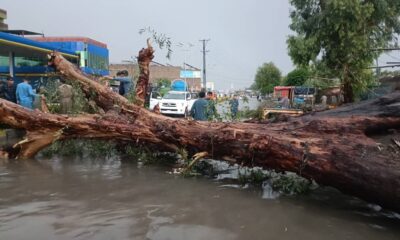
 Latest News4 days ago
Latest News4 days agoOne dead, dozens injured as powerful storm strikes Jalalabad, Afghanistan










